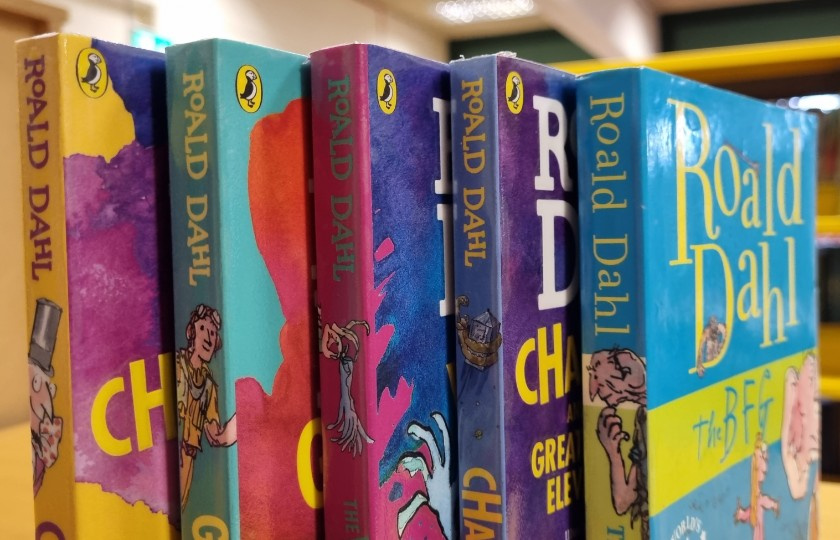
It was recently announced that the works of Roald Dahl had undergone hundreds of changes by the rights holders, Puffin Books, in an effort to remove words or imagery that could be deemed offensive. The move sparked criticism of the publisher as going against Dahl's wishes that his work never be edited. Now, Puffin has announced that two versions of the Dahl collection will be available: the Classic unedited collection and a version for younger readers that caters "for the sensitivities of modern audiences". In this article, Dr Eugene O'Brien, Head of MIC's Department of English Language and Literature, has his say about the idea of editing an author's historic works:
The recent furore over the retrospective changing of words in some Roald Dahl books has generated a lot of debate, most notably in the media and on social media and people have been taking strong positions. Some are critical of the ‘woke’ tendency to change everything, while others are angry at the original terminology in the first place.
This is a microcosm of a broader discussion wherein the older certainties seem to be deconstructed, and new and more complex ways of seeing and saying the world have become more prevalent.
Let me nail my own colours to the mast here: I’m in favour of people choosing their own pronouns and their own gender preferences, and I am in favour of Ireland as a multi-cultural and tolerant place where people are accepted rather than being demonised in terms of race, gender or social status. However, and I’m aware this may seem contradictory, I am very much against the idea of changing the text in older books to make them acceptable to the readers of today.
I am against this for two reasons. Firstly, I think it is very important that all readers see the past as what it actually was: a time when tolerance was less important and where terms that we would now see as abusive or triggering were widely used. Replacing these original terms flattens and sanitises the past into an incorrect remembered version of the present, and it also diminishes the progress that we have made as a society in terms of tolerance and seeing the importance of using language sensitively and inclusively.
In today’s world, we don’t agree that ‘sticks and stones can break your bones but names can never hurt you’; we now realise that names, words and comments can be devastating to people’s self-image.
Secondly, it has long been the case that only certain books from certain periods remain read and popular. Let the Dahl books stand as they are; if people are offended by them, or don’t want their children to read them, then these books will not be bought, and will gradually decrease in popularity – this has long been the case, as new social contexts affect the way texts are appreciated or not. We need to portray the past accurately and distance it from the present.
On an additional note, in term of marketing, this whole furore has done no harm to the sales of Dahl books I would imagine – not that this would be a factor, of course! Interestingly, there will now be a Roald Dahl classic collection which will be unchanged, thereby doubling the chances for sales of the books.
Dr Eugene O’Brien is Associate Professor and Head of the Department of English Language and Literature at MIC and is also the director of the Mary Immaculate Institute for Irish Studies. He is the editor for the Oxford University Press Online Bibliography project in literary theory (Oxford Online Bibliographies: Literary and Cultural Theory), and of the Routledge Studies in Irish Literature series (Routledge Studies in Irish Literature). He has published a number of books on Seamus Heaney and on contemporary Irish writing and culture. He is currently working on a monograph on Paul Howard (Routledge 2022); a monograph on Micheal O’Siadhail (Routledge) and A Companion to 21st Century Irish Writing (with Anne Fogarty) (Routledge).



